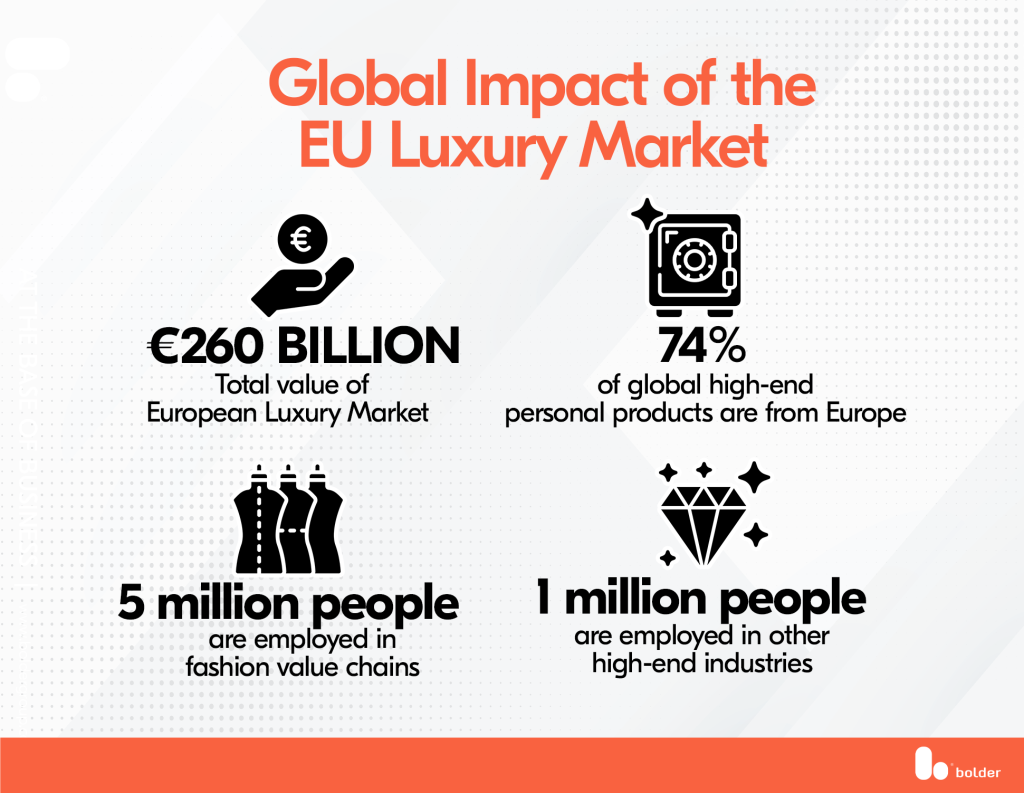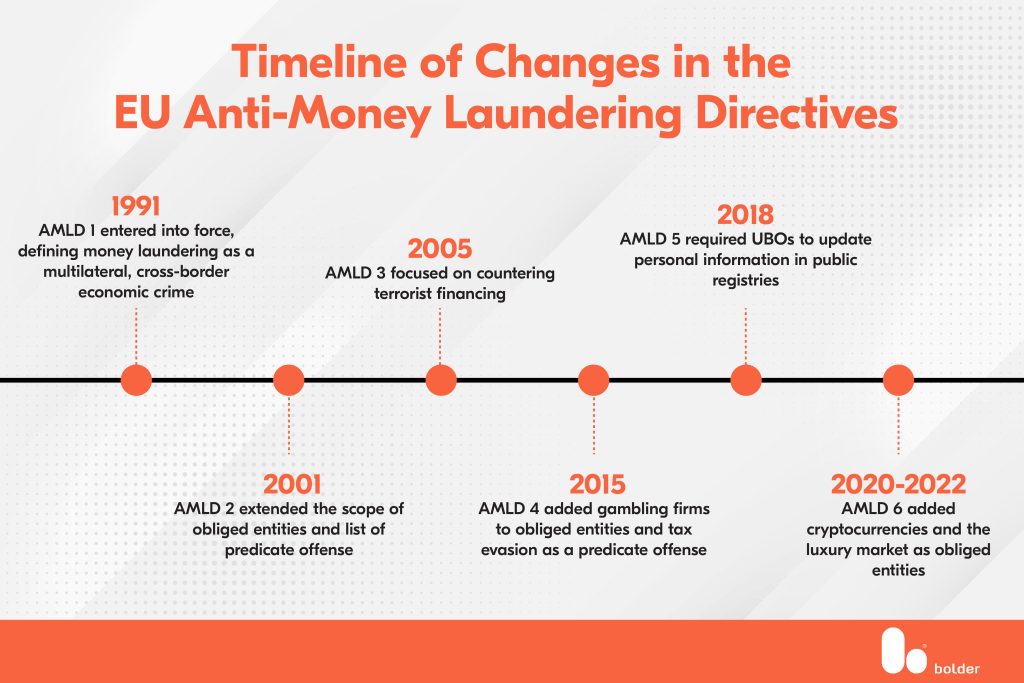EU Luxury Market: Compliance Challenges to Expect
DISCLAIMER: This post was last modified on 13 June 2024. Some information in this article may not be updated.
The EU luxury market, which prides itself in providing only the highest quality of service and experience, thrives on the trust and exclusivity it can provide to its consumers. The industry’s success is reflected in its market value and contribution to the EU economy.

However, because of the industry’s regard for the privacy of the transactions, it has become highly susceptible to criminal activities, specifically money laundering. The EU Council and Parliament impose stringent policies on AML screening to prevent these crimes in the region, as provided for under the various versions of the AML Directive. But although these directives aim to protect EU citizens and the region’s financial systems from illicit transactions or crimes, regulations and compliance requirements may also prove to be a challenge for market actors in the EU’s luxury market.
Compliance-related challenges for EU luxury market players
Evolving Regulatory Landscape
The enactment of AML directives is the EU’s approach to protecting its financial systems from illegal money and financial activities. However, to keep up with globalisation, the rapid movement of money and technological advancements, the directives soon turned into a rigorous regulatory framework.

Navigating the industry as market players will soon present more compliance challenges in the EU sector as this piece of legislation continues to evolve in the coming years. It becomes especially trickier for industries that have only recently been subjected to AML directives. Hence, it is crucial to invest in sustainable KYC and AML solutions that can ensure compliance despite continuous development in regulatory laws.
Anonymous, high-value cash-based transactions
The EU luxury market has always been accustomed to great privacy in terms of deals and transactions. Privacy is an integral part of the sector as it preserves the exclusivity of the overall luxury market experience.
Since privacy is highly maintained in the luxury goods sector, criminal networks have exploited this by anonymously purchasing movable high-value goods through cash-based transactions. This strategy allows illicit money to circulate in legitimate financial systems. Anonymous cash-based transactions, due to the lack or absence of a paper trail, make it difficult for authorities to prove any illegalities related to the money.
As a countermeasure to this scheme, the AMLD 6 limits high-value cash-based transactions to 3,000 to 10,000 euros. The new directive for AML will now require (a) due diligence requirements, (b) enhanced customer identification procedures, (c) record-keeping requirements and (d) transaction monitoring and reporting.
This becomes another compliance challenge for participants of the EU luxury market as it urges them to pay more attention to compliance laws rather than their daily business operations.
Balancing KYC and customer privacy
Most consumers of high-end goods are High-Net-Worth Individuals who are often subject to KYC policies. With the recent developments of the AMLD, these consumers may need to provide more documents proving the legitimacy of their SOW and, to some extent, their transactions.
This case highlights the need to tackle the challenges in compliance through sustainable KYC and AML solutions. To strike a balance between complying with AML and KYC requirements and maintaining the privacy of consumers and their transactions, entities should ensure that they employ a risk-based KYC approach and strong data privacy protocols.
How We Can Help
Compliance is key to ensuring financial systems are protected from illegal networks and activities. It also serves as an avenue for entities to prove that they operate with transparency and integrity.
Bolder Group designs compliance programmes aligned with the needs of entities in various sectors, including the luxury goods market. Compliance is at the core of our workflow and processes. We can help you stay up-to-date and compliant through our robust KYC solutions amidst the evolving regulatory landscape.
For more information about our outsourced KYC/AML solutions, please go to this link: AML: Outsourced KYC Compliance – Bolder (boldergroup.com)
Disclaimer: Bolder Group does not provide financial, tax or legal advice and the information contained herein is meant for general information purposes only. We strongly recommend that before acting on any of the information contained herein, readers should consult with their professional advisers. The Bolder Group accepts no liability for any errors or omissions in the information, or the consequences resulting from any action taken by a reader based on the information provided herein.
Bolder Group refers to the global network of independent subsidiaries of Bolder Group Holding BV. Bolder Group Holding BV provides no client services. Such services are provided solely by the independent companies within the Bolder Group which are each legally distinct and separate entities and have no authority (actual, apparent, implied or otherwise) to obligate or bind Bolder Group Holding BV in any manner whatsoever. The operations of the Bolder Group are conducted independently and have no affiliation with third party financial, tax or legal advisory firms or corporations.
